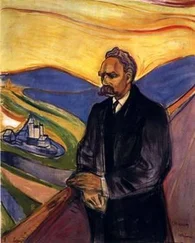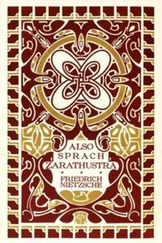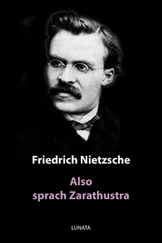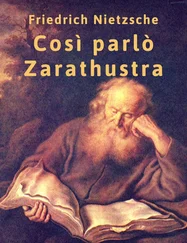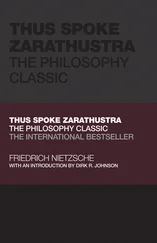On the open height wouldst thou be; for the stars thirsteth thy soul. But thy bad impulses also thirst for freedom.
Thy wild dogs want liberty; they bark for joy in their cellar when thy spirit endeavoureth to open all prison doors.
Still art thou a prisoner—it seemeth to me—who deviseth liberty for himself: ah! sharp becometh the soul of such prisoners, but also deceitful and wicked.
To purify himself, is still necessary for the freedman of the spirit. Much of the prison and the mould still remaineth in him: pure hath his eye still to become.
Yea, I know thy danger. But by my love and hope I conjure thee: cast not thy love and hope away!
Noble thou feelest thyself still, and noble others also feel thee still, though they bear thee a grudge and cast evil looks. Know this, that to everybody a noble one standeth in the way.
Also to the good, a noble one standeth in the way: and even when they call him a good man, they want thereby to put him aside.
The new, would the noble man create, and a new virtue. The old, wanteth the good man, and that the old should be conserved.
But it is not the danger of the noble man to turn a good man, but lest he should become a blusterer, a scoffer, or a destroyer.
Ah! I have known noble ones who lost their highest hope. And then they disparaged all high hopes.
Then lived they shamelessly in temporary pleasures, and beyond the day had hardly an aim.
“Spirit is also voluptuousness,”— said they. Then broke the wings of their spirit; and now it creepeth about, and defileth where it gnaweth.
Once they thought of becoming heroes; but sensualists are they now. A trouble and a terror is the hero to them.
But by my love and hope I conjure thee: cast not away the hero in thy soul! Maintain holy thy highest hope! —
Thus spake Zarathustra.
9. The Preachers of Death.
Table of Contents
There are preachers of death: and the earth is full of those to whom desistance from life must be preached.
Full is the earth of the superfluous; marred is life by the many-too-many. May they be decoyed out of this life by the “life eternal”!
“The yellow ones”: so are called the preachers of death, or “the black ones.” But I will show them unto you in other colours besides.
There are the terrible ones who carry about in themselves the beast of prey, and have no choice except lusts or self-laceration. And even their lusts are self-laceration.
They have not yet become men, those terrible ones: may they preach desistance from life, and pass away themselves!
There are the spiritually consumptive ones: hardly are they born when they begin to die, and long for doctrines of lassitude and renunciation.
They would fain be dead, and we should approve of their wish! Let us beware of awakening those dead ones, and of damaging those living coffins!
They meet an invalid, or an old man, or a corpse—and immediately they say: “Life is refuted!”
But they only are refuted, and their eye, which seeth only one aspect of existence.
Shrouded in thick melancholy, and eager for the little casualties that bring death: thus do they wait, and clench their teeth.
Or else, they grasp at sweetmeats, and mock at their childishness thereby: they cling to their straw of life, and mock at their still clinging to it.
Their wisdom speaketh thus: “A fool, he who remaineth alive; but so far are we fools! And that is the foolishest thing in life!”
“Life is only suffering”: so say others, and lie not. Then see to it that YE cease! See to it that the life ceaseth which is only suffering!
And let this be the teaching of your virtue: “Thou shalt slay thyself! Thou shalt steal away from thyself!”—
“Lust is sin,”— so say some who preach death —”let us go apart and beget no children!”
“Giving birth is troublesome,”— say others —”why still give birth? One beareth only the unfortunate!” And they also are preachers of death.
“Pity is necessary,”— so saith a third party. “Take what I have! Take what I am! So much less doth life bind me!”
Were they consistently pitiful, then would they make their neighbours sick of life. To be wicked—that would be their true goodness.
But they want to be rid of life; what care they if they bind others still faster with their chains and gifts! —
And ye also, to whom life is rough labour and disquiet, are ye not very tired of life? Are ye not very ripe for the sermon of death?
All ye to whom rough labour is dear, and the rapid, new, and strange—ye put up with yourselves badly; your diligence is flight, and the will to self-forgetfulness.
If ye believed more in life, then would ye devote yourselves less to the momentary. But for waiting, ye have not enough of capacity in you—nor even for idling!
Everywhere resoundeth the voices of those who preach death; and the earth is full of those to whom death hath to be preached.
Or “life eternal”; it is all the same to me—if only they pass away quickly! —
Thus spake Zarathustra.
Table of Contents
By our best enemies we do not want to be spared, nor by those either whom we love from the very heart. So let me tell you the truth!
My brethren in war! I love you from the very heart. I am, and was ever, your counterpart. And I am also your best enemy. So let me tell you the truth!
I know the hatred and envy of your hearts. Ye are not great enough not to know of hatred and envy. Then be great enough not to be ashamed of them!
And if ye cannot be saints of knowledge, then, I pray you, be at least its warriors. They are the companions and forerunners of such saintship.
I see many soldiers; could I but see many warriors! “Uniform” one calleth what they wear; may it not be uniform what they therewith hide!
Ye shall be those whose eyes ever seek for an enemy—for your enemy. And with some of you there is hatred at first sight.
Your enemy shall ye seek; your war shall ye wage, and for the sake of your thoughts! And if your thoughts succumb, your uprightness shall still shout triumph thereby!
Ye shall love peace as a means to new wars—and the short peace more than the long.
You I advise not to work, but to fight. You I advise not to peace, but to victory. Let your work be a fight, let your peace be a victory!
One can only be silent and sit peacefully when one hath arrow and bow; otherwise one prateth and quarrelleth. Let your peace be a victory!
Ye say it is the good cause which halloweth even war? I say unto you: it is the good war which halloweth every cause.
War and courage have done more great things than charity. Not your sympathy, but your bravery hath hitherto saved the victims.
“What is good?” ye ask. To be brave is good. Let the little girls say: “To be good is what is pretty, and at the same time touching.”
They call you heartless: but your heart is true, and I love the bashfulness of your goodwill. Ye are ashamed of your flow, and others are ashamed of their ebb.
Ye are ugly? Well then, my brethren, take the sublime about you, the mantle of the ugly!
And when your soul becometh great, then doth it become haughty, and in your sublimity there is wickedness. I know you.
In wickedness the haughty man and the weakling meet. But they misunderstand one another. I know you.
Ye shall only have enemies to be hated, but not enemies to be despised. Ye must be proud of your enemies; then, the successes of your enemies are also your successes.
Resistance—that is the distinction of the slave. Let your distinction be obedience. Let your commanding itself be obeying!
To the good warrior soundeth “thou shalt” pleasanter than “I will.” And all that is dear unto you, ye shall first have it commanded unto you.
Читать дальше

